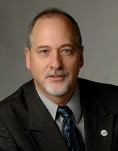
Flarnie Marchan
Flarnie Marchan is a technology enthusiast, web developer, and advocate of open education. When not working or playing with all things web, she enjoys the sun and palm trees of Southern Florida. You can read her blog for information on technology and design.
Soumabha and Manoj have given me the wonderful chance to share my experience of Internet History, Technology, and Security, one of the free classes available on Coursera. This course provides an accessible overview of the history and workings of the world wide web. Guiding this tour of the web is Professor Charles Severance, a.k.a. "Dr. Chuck", of the University of Michigan.
Half History, Half Technology, and a Hint of Security
 The first half of the course focused on the history of the internet and World Wide Web, from the first computers created at Blechley Park to the present day. The second half of the course covered the specific technologies that are used in today's internet. One lecture dealt with the topic of internet security, but overall this was treated as a minor topic.
In the section on internet history, the use of interviews and documentary footage brought the history to life. I got to hear first hand from people like Robert Cailliau, Jeff Bezos, and Brendan Eich, who were actually involved in the history of the internet.
I also appreciated the clear explanations of technical concepts. In the sections dealing with technology, the professor revisited core concepts to reinforce the information. He also usually provided diagrams or visual aids during the lecture. Knowing some basics about how the internet works is valuable for everyone in today's technology saturated world.
The first half of the course focused on the history of the internet and World Wide Web, from the first computers created at Blechley Park to the present day. The second half of the course covered the specific technologies that are used in today's internet. One lecture dealt with the topic of internet security, but overall this was treated as a minor topic.
In the section on internet history, the use of interviews and documentary footage brought the history to life. I got to hear first hand from people like Robert Cailliau, Jeff Bezos, and Brendan Eich, who were actually involved in the history of the internet.
I also appreciated the clear explanations of technical concepts. In the sections dealing with technology, the professor revisited core concepts to reinforce the information. He also usually provided diagrams or visual aids during the lecture. Knowing some basics about how the internet works is valuable for everyone in today's technology saturated world.Technology is for everybody, and that means everybody.
- Dr. Chuck, Grand Finale Lecture
A Class for Everyone
Optional Writing Assignments
Accomodating non-English speaking students was one reason that Dr. Chuck decided to make the writing assignments extra credit. Initially the peer-reviewed writing assignments were a required component of the coursework, but the first writing assignment was followed by a sharp drop in enrollment and numerous complaints.
Useful for Teachers
A bonus of this particular course is that the professor has released all of his slides under a Creative Commons license, and encourages teachers to use them. Allowing the copying, remixing, and reuse of his teaching materials takes the concept of "open education" to another level. The impact becomes wider than the initial group of Coursera students. I would especially recommend Internet History, Technology, and Security to teachers as resource for improving or adding to their own knowledge base.
Just As Advertised
Image Credits: Map and graph were created by Dr. Chuck using survey data from students in the 2012 Interenet History, Technology, and Security class. CC-BY Dr. Chuck



No comments:
Post a Comment